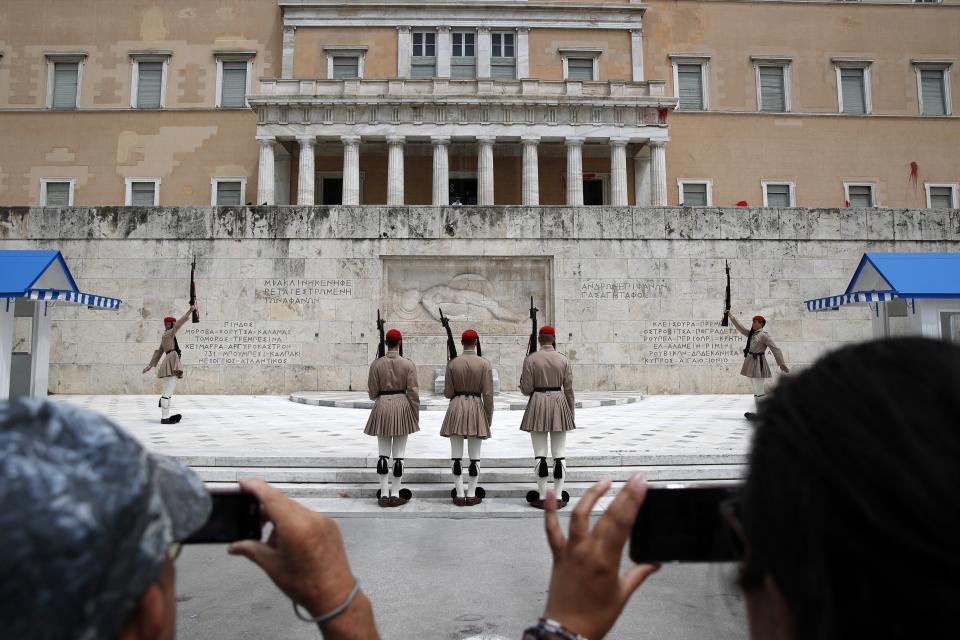Hunger-striking Greek extremist wins new hope of jail leave
ATHENS, Greece (AP) — Greece's supreme court on Thursday ordered lower judges to reconsider granting a new temporary leave from prison to a far-left extremist serving 11 life sentences, who has been on hunger strike for three weeks after his initial request was rejected.
Dimitris Koufodinas is in intensive care due to the effects of his hunger strike, which triggered arson attacks and vandalism by far-left sympathizers in Athens and other Greek cities.
A panel of judges in the central town of Volos, where Koufodinas' prison is located, is expected to examine the furlough request in coming days. They had argued that he still poses a threat to society and has never repented.
Koufodinas, 61, has been convicted of 11 murders in his role as the main hit man for Greece's deadliest far-left terrorist organization, which evaded authorities for a quarter-century until a bomb detonated prematurely in 2002, injuring a group member and leading to arrests.
The now-defunct November 17 group professed a mix of Marxism and nationalism and killed 23 people between 1975 and 2000, including four U.S. nationals.
Since late 2017, Koufodinas has been granted six furloughs, once after a hunger strike. He angered many after he was photographed during a leave walking in central Athens near where some of his victims died.
The supreme court judges argued that the law allows furloughs even for convicts serving multiple life sentences. They also noted that Koufodinas has displayed good conduct in prison and returned from all his previous leaves.
While not binding, Thursday's decision is expected to bear significantly on the Volos judges' ruling.
Koufodinas' lawyer, Ioanna Kourtovik, said it was not immediately clear whether her client would persist with his hunger strike.
Koufodinas has also been transferred from a maximum-security Athens prison, where he had been held since 2003, to the more lax Volos penitentiary. The furloughs and the transfer have been criticized as undue leniency by victims' relatives and by U.S. officials.



